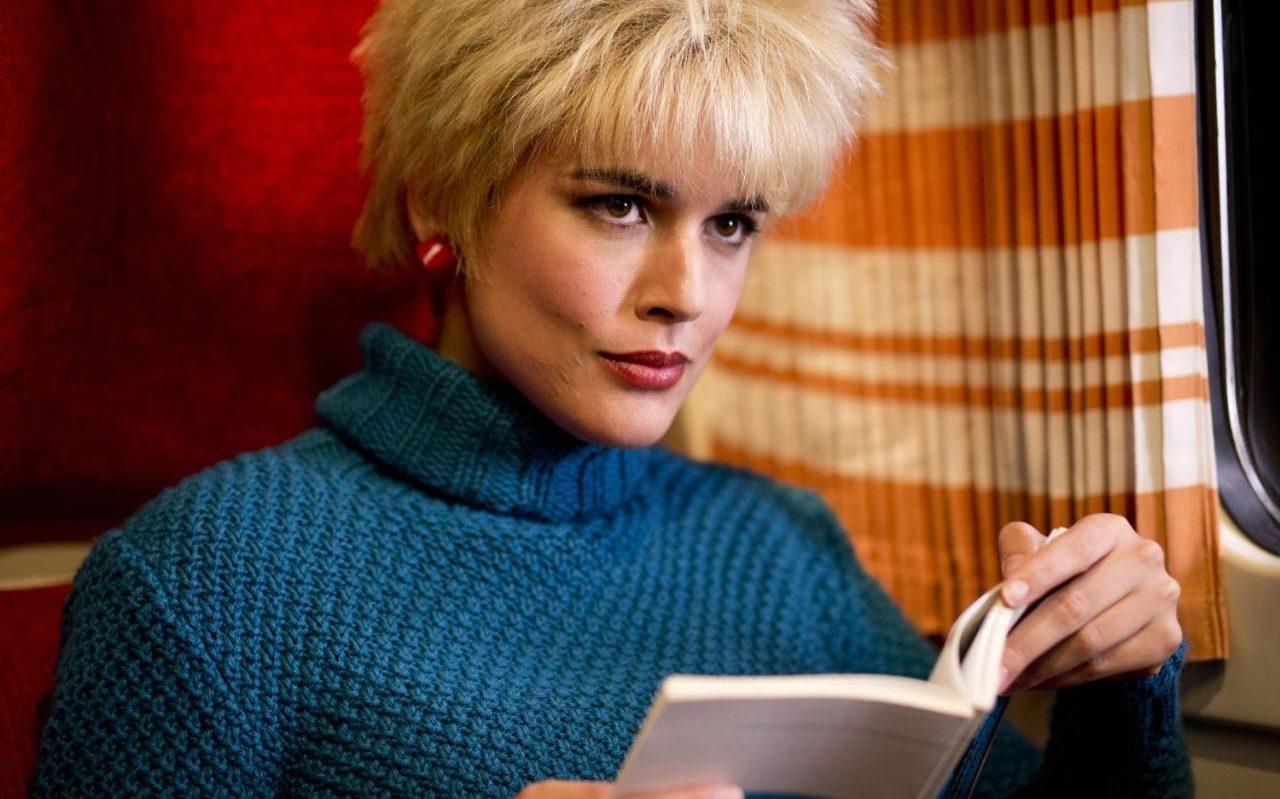Julieta review: Pedro Almodovar’s new film is a swirling family melodrama
It has the disorienting feel of a late Hitchcock film like Vertigo - and one of its stars, Adriana Ugarte, even looks a little like the femme fatale Kim Novak in that film

Pedro Almodovar, 111 mins, starring: Emma Suarez, Adriana Ugarte
Pedro Almodovar’s magnificent new film Julieta is a swirling family melodrama, full of reversals, flashbacks, and jarring plot twists. It has the disorienting feel of a late Hitchcock film like Vertigo - and one of its stars, Adriana Ugarte, even looks a little like the femme fatale Kim Novak in that film.
The Alberto Iglesias music is as eerie and as full of foreboding as the scores that Bernard Herrmann used to write for Hitchcock. There is a strong strain of fatalism to the storytelling, a sense that the characters here can’t influence events in their own lives or to do anything to avoid the grief heading their way.
Julieta (Emma Suárez) is first encountered as a seemingly contented middle-aged woman. We can tell by the paintings and books in her modernist Madrid apartment that she is an art lover. She is affluent and glamorous. Julieta is planning to leave Spain to start a new life in Portugal with her boyfriend, Lorenzo. By chance, walking on the streets one day, she bumps into Bea, a childhood friend of her daughter, Antia. Bea mentions that she has seen Antia recently.
This news is like a thunderbolt for Julieta and prompts the prolonged flashback in which we learn the circumstances in which Antia was conceived; what happened to her father and why mother and daughter have been estranged for so long.
Ugarte plays Julieta as a younger woman. She is a classics teacher who has just finished a stand-in job in a school, covering for someone on maternity leave. Now, she has time on her hands. During a long train journey, she sits opposite a mysterious older man, who seems to be hitting on her. She also meets Xoan (Daniel Grao), soon to be her lover, for the first time.
Almodovar films this night-time journey in dream-like fashion. Julieta sees a stag in heat racing alongside the train. She has a brush with death. She makes the connection with Xoan. Soon afterwards, she visits him in the idyllic fishing town in which he lives. They move in together.
The scenes in which Julieta tries to establish herself in her new home seem consciously to echo Hitchcock’s Rebecca. Xoan has a wife who has just died. There is even a Mrs. Danvers-like maid, played in scolding, intense fashion by the huge-eyed Rossy De Palma, who seems to disapprove of everything about Julieta.
Even so, for a while, the new family is happy enough. Julieta and Xoan have their child, Antia, together. She is suspicious, though, of his relationship with his old friend, Ava (Imma Cuesta), an artist who specialises in strangely phallic sculptures.
Julieta is adapted from three stories by Alice Munro. At times, it skirts close to soap opera. The plot is heavily reliant on coincidence. This is a story of a family coming apart. There is guilt, misunderstanding and betrayal. Almodovar tackles what is at times very downbeat material with his customary flamboyance, using plenty of strident red in the colour scheme.

Watch Apple TV+ free for 7 days
New subscribers only. £8.99/mo. after free trial. Plan auto-renews until cancelled

Watch Apple TV+ free for 7 days
New subscribers only. £8.99/mo. after free trial. Plan auto-renews until cancelled
He defamiliarises everyday contemporary settings, making them unsettling and threatening. He can make a simple domestic scene - a character hurling a birthday cake in a bin - seem operatic. This is a film about memory and identity - and about Julieta’s very vexed relationship with her own past.
Initially, it is disconcerting to have two actresses who don’t actually look that much alike playing the same role. Both excel. Ugarte captures Julieta’s recklessness and lust for life as a young woman. Suárez shows how she has become a much more guarded and defensive personality while also conveying in heart-rending fashion her character’s bewilderment and panic at the thought her daughter may have abandoned her.
Almodovar is known to be a fan of mother-daughter melodramas like Stella Dallas and Mildred Pierce. He is the one contemporary director who can make films that have the same heady feel as those old Hollywood classics in the way they deal with the ruptures of family life.
Subscribe to Independent Premium to bookmark this article
Want to bookmark your favourite articles and stories to read or reference later? Start your Independent Premium subscription today.

Join our commenting forum
Join thought-provoking conversations, follow other Independent readers and see their replies